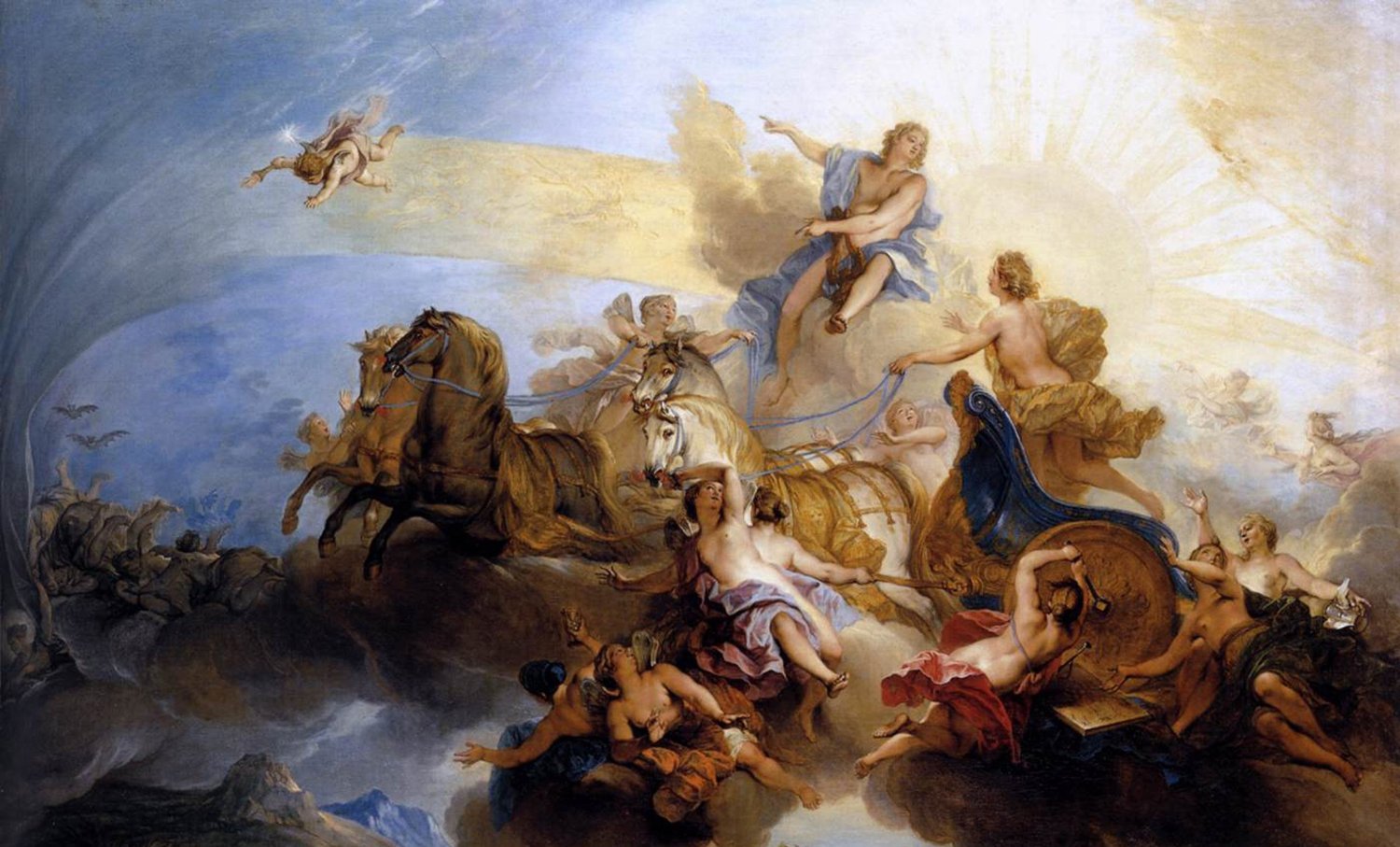I.
Again the darkling moon is new this night,
and cold deserted seas in lunar sleep
lay fasting and far from the waxing light;
as bright Apollo* flails the unknown deep
beyond the threshold of our midnight sun,
his bending rays hold back from Latmus* glade,
where the shepherd waits for easy painless death
(those golden reins undone)
below the viewless sheath of monthly shade,
absent the glow of light and silver breath.
Phaethon, son of Apollo who dared his father to drive
his golden chariot for a day; Apollo, Greek god of the sun,
light, truth, music and healing among others; Latmus,
the site where Selene’s lover Endymion, a shepherd,
lies forever young and beautiful in blissful sleep.
II.
What bliss I would enjoy, if unveiled life,
its full blinding face, were here upon me,
not by some phony creed or coward’s knife
but by the loving kiss of Selene;*
with this, I would then decree—happiness!
knowing that my solitary chords were heard
by healer and by friend as music borne
up to forgetlessness,
that Endymion,* and his fruitful word,
should be my companions about the morn.
Selene, Greek moon goddess and sister to Apollo;
Endymion, lover of Selene.
III.
But here the morning’s nowhere to be found,
only the dull curve of her* regal throne
spies on me, taunting me without a sound;
and I cannot (with all my powers known)
capture in me her familial grace;
it’s lost between my hand and this one feat
where I sit waiting for day, more empty
than in that hollow space
above the clouds, with fear I may not meet
her warm embrace or drink her teeming sea.
her, Eos, Greek goddess of the dawn and sister to Apollo
and Selene.
IV.
If only long-armed Polaris* would steep
his starry cup* into my blackened sea,
lift me far aloft, and promise to keep
what Sun and Moon have kept untrained on me;
then through the fleshy gate I would ascend,
past shadows and mist, to my conscious throne
at the center of the clear world, where youth
and sacred rivers bend
under towering Parnassus,* postpone
my fettered brain, and deliver the truth.
Polaris, North Star, i.e., guiding star; starry cup,
“little dipper”; Parnassus, mountain sacred to Apollo
and home to the muses.
V.
Listen! Can you hear? The throaty cock crows
at her purple light, and the eastern gate,
under the lingering morning star, glows
with haste at my chariot and my fate;
were I, sad youth, to take those burning reins
(as I am half to this failing earth bound)
into my feeble hands and dare to tame
those fiery, wilding manes—
would I recklessly plunge headlong around
and set the dry world on fire just the same?
Gregory Palmerino’s essays and poems have appeared in Explicator, Teaching English in the Two Year College, College English, Amaze: The Cinquain Journal, International Poetry Review, Courtland Review, Shot Glass Journal, The Lyric, the fib review, and The Road Not Taken. He teaches writing at Manchester Community College and writes poetry in Connecticut’s Quiet Corner, where he lives with his wife and three children.
Featured Image: “The Chariot of Apollo” by Odilon Redon.















Fabulous poem – love the directness and the lushness too; this is highly accomplished poetry, all the better for its themes and classical allusions – love it.
James,
Thanks for the note of appreciation. I’m happy to hear you enjoyed the poem.
Best,
Greg
Pleasure – keep up the good work
Phaethon at the Reins
for Gregory Palmerino
I saw him, Son of Helios, young Phaethon at the reins,
the shining mortal holding to the equine hurricanes.
For just one day he longed to ride his father’s chariot,
traversing heaven with his boldness and his lariat.
But he could not control the reins, and lit the sky ablaze.
He turned much of the Earth to desert with his scorching ways.
The polar caps were melting in the oceanic cup.
The climate change was devastating, burning people up.
In order to restore Earth’s balance, Zeus smote Phaethon with
a thunderbolt of sanity to halt his deadly myth,
that he could cross the sky upon his father’s golden car
without emitting carbon oxides, leaving Earth no scar.
Thanks for the poetic retort, Bruce. GP